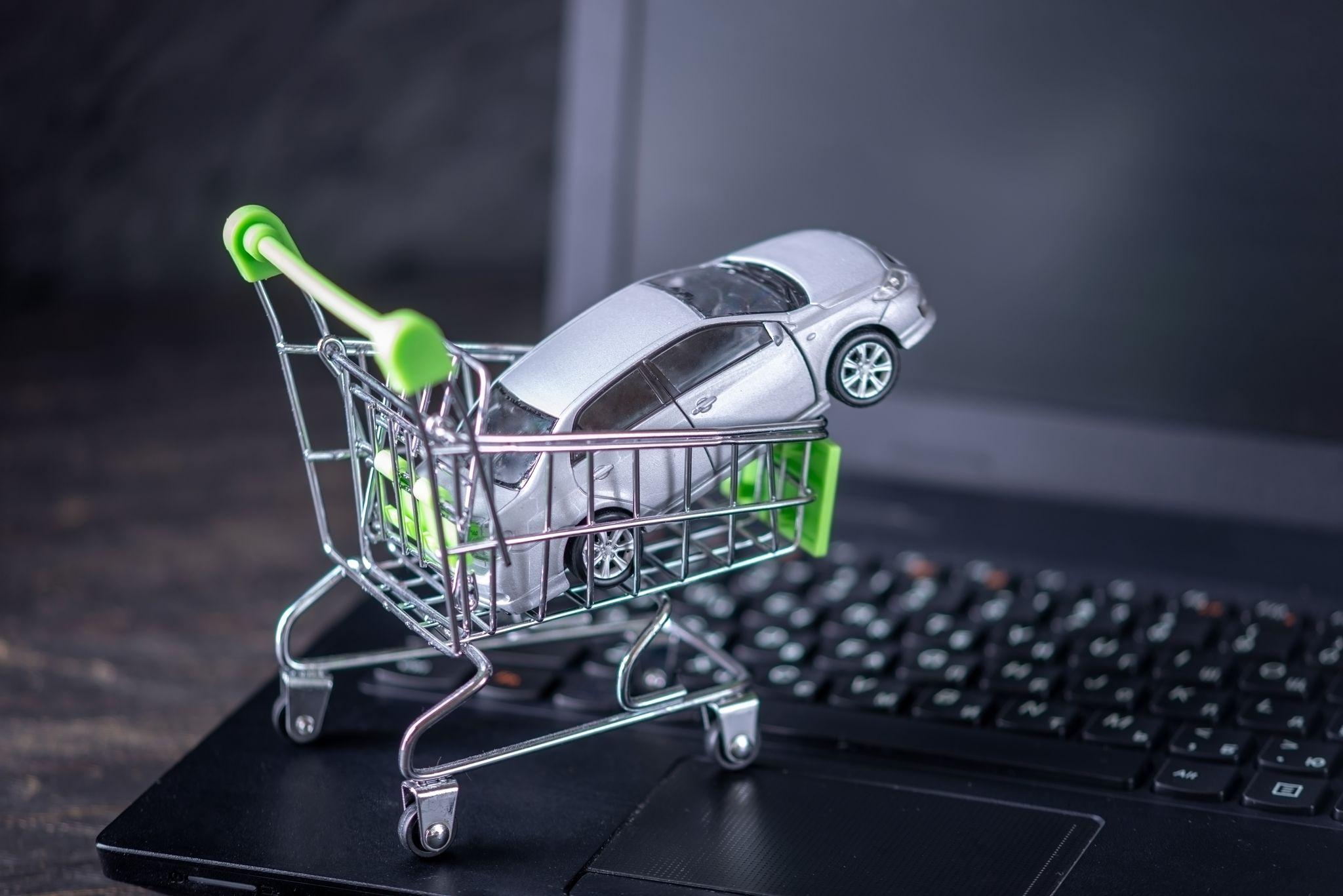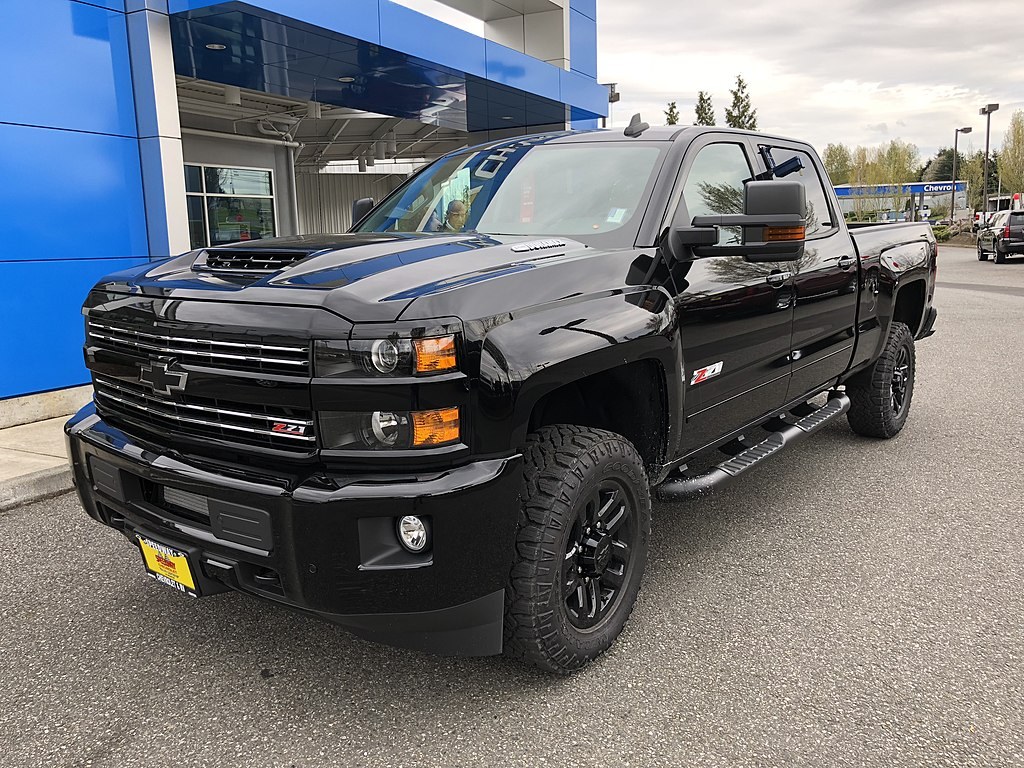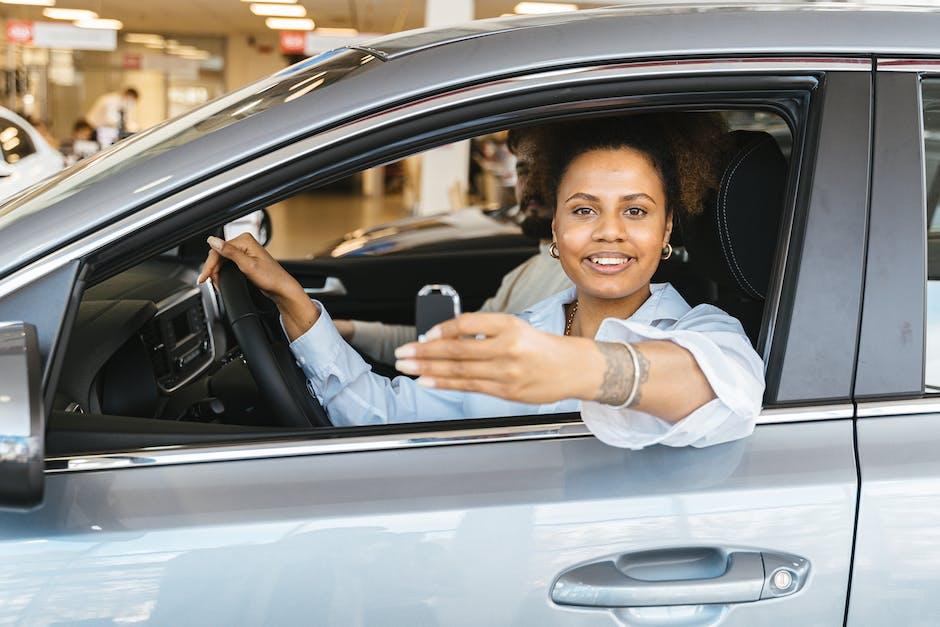Are you looking to buy a car? Don't make the mistake of purchasing before first seeking how you can take full advantage.
Today, there are several routes to buy a vehicle. You can visit a traditional dealership, purchase from a private seller, drive to car auctions, or simply click a "buy" button on the internet.
Whether you're buying a new or used car, keep reading for steps to take well before you ever set foot in a dealership—if that's the choice you make.
Identify Your Priorities
When buying a vehicle, it's imperative to consider your priorities. Take a good, hard look at which stage of your life you're in, where you're spending your money, and how you'll use your vehicle.
Of course, you want to find a car without maintenance issues, but beyond that, your final choice really comes down to your lifestyle. Consider whether the following items create hard requirements for you:
- Weather: If you live in a colder climate, four-wheel-drive or AWD may be necessary for you
- Family: You might need extra space for current (or future) kids
- Cargo space: Essential if you plan on taking Fido with you on trips
- Electric: You could go electric if you live in an area with an abundance of charging stations
- Gas mileage: If you drive frequently, cut your gas bill in half with a fuel-efficient vehicle
- Activities: Adventure junkies need extra suspension and enough clearance to handle bumpy roads
The rule of thumb here is to avoid picking a flashy car that your think looks nice but doesn't meet any of your requirements. Sure, you may genuinely want that brand-new Mercedes, and you'll find a way to make it work. However, most of us don't need a luxury vehicle.
Every dollar you don't spend on a new car is one you can spend elsewhere—on something that brings you true joy.
With that in mind, let's talk about researching the car you want to buy.
Do Extensive Research
Never arrive at a car lot without doing due diligence first. Knowledge is power, and this is even more true when it comes to purchasing a vehicle.
You can find just about everything you need to know about every make and model car online. To begin researching cars in your price range, check out websites such as Consumer Reports, Edmunds.com, and Kelley Blue Book (KBB).
When buying new, search for the invoice price, not the car's MSRP. The invoice price is what the car dealer paid for the vehicle, which will come in handy during negotiations.
If you're considering a used car, look up the recent sale prices for that specific model. This information gives you significant bargaining power later on.
When you're trading in your current car, you should also research those recent sale prices. Never enter negotiations with a dealer without knowing these numbers.
Consider Prefinancing Options
Most dealerships offer to finance, but it's not always fiscally responsible.
Typically, interest rates at a dealership are much higher than those from credit unions and banks—even when rates are averaging on the lower-end. Always start with your credit union or bank when researching loan rates. You'll often be able to access relationship discounts that you won't find elsewhere.
You can use aggregators like LendingTree to access multiple financing quotes at once. It's also a good idea to check your credit score beforehand to understand your interest rate qualifications better. If you notice that your credit score is lower than you thought, consider waiting to purchase a car if you can. Working to pay off debt and improve your credit can positively influence the loan interest rate you receive down the road.
Once you obtain a car loan quote, always ask for it in writing. When you're at the dealership, keep this in your back pocket when they bring up financing options. If you're lucky, you can use it to negotiate a lower loan interest rate.
Only Buy What You Can Afford
When buying a vehicle, wait until your current one is paid off, if possible. If not, seriously consider whether it's the right time to buy a new car. Can you afford it? You don't want to end up with an upside-down car loan.
It is often wiser to wait until your current vehicle is paid for before beginning the process to purchase another. You can set aside the money you were using to make your car payment in a savings account while you continue to drive your old car. This method can pad your savings, or you can use it for a down-payment on the car you truly want.
Whatever you do, always enter a car-buying situation with confidence and never regret walking away from an offer.
Look at Both New and Used Options
New cars are shiny and can dominate our attention, but sometimes it doesn't make sense to purchase new when there are acceptable used options.
Buying used doesn't mean you have to sacrifice quality, as plenty of dealerships offer certified pre-owned options just as good as newer models.
Buying a used car is actually one of the best ways to saving money during a car deal, as a new car's value begins to depreciate as soon as you drive it off of the lot.
Used car pricing is driven by macroeconomic conditions and supply and demand, which often varies regionally.
However, don't write off buying a new car altogether. If you plan to drive your vehicle long-term, you might not have to worry about depreciation, as most of it occurs during the first five years of a car's life. After five years, the net cost of ownership significantly declines.
Determining Where and How to Buy
Unless you need a new vehicle immediately, it's wise to shop around before making any purchasing decisions. Many people walk away from dealers to assess their rock-bottom price—the one they give you as you're walking out of the door.
You may also want to explore out-of-town options because many car dealers price their car according to location.
However, you don't always have to go the traditional dealership route. Here are a few alternatives.
Try the Internet
It's now easy to buy a car online thanks to websites like Carvana, and the process has several benefits.
One of the most attractive aspects of purchasing a car on the internet is that you don't have to go through the hassle of negotiating face-to-face with a dealer. Without the pressure of negotiation, you can lower your risk of accidental missteps that end in you paying more than you should.
There are also fundamentally different incentives available online. Dealers will try to negotiate for the highest price possible on the showroom floor, as they're counting on commission. On the other hand, an internet sales manager typically gets a set salary and enjoys bonuses based on sales volume.
And lastly, purchasing a car online is wildly more convenient than visiting a dealership—or ten. Today, almost all car dealers list their available vehicles on their dealership and third-party websites. They welcome Internet sales. Non-dealer outlets, such as eBay Motors, TrueCar, and KBB, offer excellent options thanks to direct-to-consumer manufacturer partners.
One downside of purchasing a vehicle online is that you can't test drive the exact car you're buying. However, test driving the same make and model is the next best thing. You should also take your new car to a mechanic to have it assessed as soon as you purchase it to ensure there's nothing nefarious hiding under the hood.
Visit Car Auctions
If you feel like trying something new, consider visiting car auctions when looking for a new vehicle. Most used car dealers get their vehicles from auctions, where they pay relatively little for the cars they'll sell for a tidy profit.
The ability to bypass those dealer markups and buy a vehicle at an auction sounds like a good plan. However, before heading off to the auction, you should understand the different types of auctions out there. You also must familiarize yourself with the rules and requirements of each first.
Public vs. Dealer Car Auctions
A public car auction—like its name implies—is open to pretty much anyone with money who can sign on a dotted line.
These events include fleet sales from large governmental agencies, local municipalities, and individual dealerships. These are the types of cars you might find on eBay.
Dealer auctions are considered private and open only to licensed car dealers. You might find a pickup from the highway department or a decommissioned police car at a local public auction. At a dealer auction, however, you'll see hundreds, sometimes thousands, of vehicles.
The vehicles at dealer auctions usually include low-mileage models from major rental companies, automakers' lease returns, and vehicles that dealers could not sell quickly.
There are also online car auctions that make buying from an auction even more convenient.
How to Get Your Dealer License
If you want to buy a car from a dealer auction, you'll need a license.
Before anything else, visit your local DMV in-person or online, where you'll find your state's specific rules and regulations. These vary by state, but usually, you must apply along with a fee. The fee ranges from fifty to several hundred dollars.
You might also be asked to provide a business license, business plan, and tax or employer identification numbers during the application process. These are necessary to process employee income taxes and customer-paid sales tax.
Unfortunately, that isn't all that's involved in getting your dealer's license. Most states will ask for proof of business insurance and a list of any inventory. You'll also have to provide a fingerprint card for a background check and any signed lease or purchase and sale agreement for your business's location.
Suppose you're actually looking to run a dealership. In that case, you'll need to meet any requirements for square footage, signage, display space, and operational service bays and abide by all local zoning laws. You must be diligent throughout this process, as a state representative might stop by for an in-person visit.
Getting a Surety Bond
Whether or not you actually own a car lot, you'll be required to get a surety bond.
A surety bond exists to ensure that your business won't engage in unethical conduct. This conduct includes anything from not paying sales taxes to misrepresenting a vehicle's condition.
Your local laws will determine how much your bond needs to cover. However, the amount typically ranges from $10,000 to $100,000. Before the state considers your application complete, you'll need to pay a percentage of the bond.
These are only some of the hoops you might have to jump through to get your dealer's license. Depending on where you live, you may also have to pay licensing fees (which are different from application fees), dealer plate fees, or auto broker fees.
Some states, such as Colorado, require a credit score and minimum net worth. Others, such as Washington D.C. and Missouri, ask dealers to complete a mandatory training course.
Bidding at Dealer Auctions
While getting your dealer license can be expensive and time-consuming, it can pay off if you're looking to gain access to a bounty of affordable vehicles.
However, keep in mind that buying a car at an auction may call for additional auction fees and transportation costs. A low price sometimes won't be entirely accurate but take all factors into account when making decisions, and it can be a financially successful endeavor.
Buying From a Private Seller
Sometimes it's possible to get a good deal on a vehicle by purchasing one directly from its current owner.
When buying a car from an individual, there are no financing options, so you must prepare to pay in cash. Potentially, you can take out a loan from your credit union or bank—but you'll have to do this independently.
In a private sale, there are two vital documents: the title and the bill of sale.
If the current owner can't produce a clear title right away, walk away from the purchase. The seller may not outright own the vehicle, or it could be stolen. If you purchase a car with a lien on it and the seller stops making payments, the company could repossess it from you.
A bill of sale will include the vehicles:
- Year, make, and model
- Vehicle identification number (VIN)
- Sale price
- Date of sale
- Names and addresses of the seller and buyer
- Notation of guarantees or conditions
The notation is "sold as is" in most private sales—the seller has no responsibility for the vehicle after the transaction is finalized.
While you're welcome to ask if a mechanic can inspect the vehicle before the purchase, the seller doesn't have to agree to this. This is the chance you take when buying directly from an individual and not a dealer.
In most cases, private sales aren't worth the risk unless you're purchasing a car for a few thousand dollars or less.
When It's Time to Buy
Once you find a car you want to buy, you must continue to do your due diligence before taking ownership of the vehicle. Here are some tips to make the process easier.
Never Skip the Test Drive
Test driving a vehicle is a vital step in the purchasing process. However, nearly 50% of Americans spend 30 minutes or less test driving a car before buying.
Whether you're buying a used or new car, test driving is equally important to ensure you're making an informed decision.
If you're not able to test drive the car (if you're purchasing it online and having it shipped to you, for example), do your best to find a similar vehicle locally. This won't help you identify potential mechanical issues on a used car, but you can get a feel for the make and model to see if you like it or not. If you don't feel comfortable during the test drive, move on.
If you have a family, bring them along for this part. They need to feel comfortable, too. While you're test driving, look for the following:
- View: You should have a clear, straight-line view from each of the mirrors and of the dashboard gauges
- Quiet idle: The car should not make much sound—it should be smooth and quiet
- Controls: Turn on the windshield wiper and air conditioning as you locate the turn signals—ensure that everything is easy to operate
- Brakes and handling: The car should respond quickly when pushing the brakes or accelerator
Basically, twist all of the knobs, switches, and levers until you know everything works as it should.
Negotiate, Negotiate, Negotiate
Never purchase a vehicle without negotiating in some way. Buying a car is a significant investment, and you may be paying this car off for several years, so the decisions you make are vital.
It's essential to let the salespeople know immediately that you're not to be taken advantage of. Do whatever you can to knock the purchase price down and negotiate the car loan terms (if financing from the dealer). It's not a bad idea to start at a ridiculous offer and work from there.
If a salesperson offers a specific monthly payment based on a 48-month loan, tell him you want the same payment on a 36-month loan. Never regret asking for more, as they can only say no during this process.
Don't Base Your Decision on Monthly Payments
Speaking of monthly payments, never make a decision based on the monthly payment.
If the monthly payment is low but comes with a 72-month loan, it's not that attractive of a deal.
Always negotiate based on the car's purchase price—and make sure you know the "full" purchase price. Check for hidden costs that have been factored into the price, including car preparation and delivery fees, various taxes, and dealership costs.
Play Your Cards Close to Your Chest
If you have a vehicle to trade-in, don't mention it right off the bat. The dealer can use this information against you. For example, say you're looking at a car that's $24,000, and the dealer will take a minimum of $20,000.
If you have a trade-in that's worth $1,500, the dealer might lower the price of the car to $21,500 and take your trade-in for $1,500—making the final purchase price $20,000.
You could have negotiated the vehicle price down to $20,000 before mentioning your trade-in, which would have made the final purchase price $18,500. Consider negotiating these two aspects of the process separately to get the best deal. Lower the cost of the car first, then go to work to get the most out of your trade-in vehicle.
Similarly, don't mention any special discounts until the final purchase price is determined, as you can tack those on at the very end, as well.
Arrange for Shipment
Whether you buy at an auction, from a private seller, or at a dealership, you must consider a way to get the vehicle home safely.
One of the best ways to do this is to have it shipped to you. This saves you from having to drive or fly to pick the car up—which is time-consuming. Not to mention, this adds unnecessary mileage to your new investment.
It's always faster and safer to arrange for a transport service to bring the car to you. While some dealerships can help you arrange this, you'll likely pay more than if you were booking it yourself.
Buying a Car Doesn't Have to Be Difficult
Now that you know more about the best way to buy a car, you can make a more informed purchase decision. Whether you choose to pursue car auctions, dealer lots, the Internet, or CraigsList, now you know how to make the process as painless as possible.
And when it's time to ship your new vehicle home, transport it with little stress and fewer costs. Before you make a decision, check out our preferred car shipping services. Calculate the cost to ship your car today!



